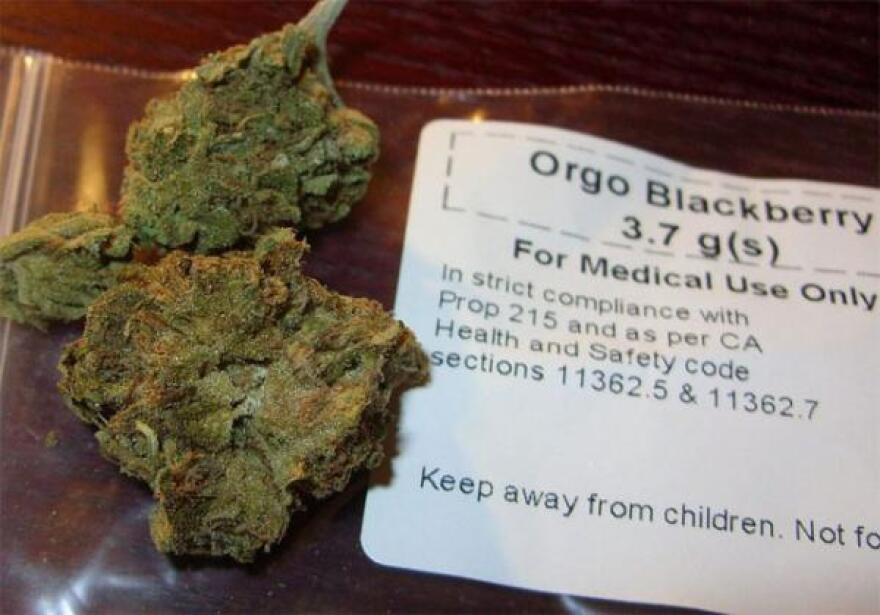Voters in Oregon have said yes to recreational marijuana. Now state officials face a challenge: how to take the pot economy that’s been operating “under their noses” and turn it into a regulated market. A key question is what will happen to the state’s medical marijuana program.
The first thing you need to know is that Measure 91 doesn’t touch Oregon’s existing medical marijuana program.
Medical pot is exempt from the measure’s system of regulation, including the $35-an-ounce tax on marijuana flowers.
Many medical card holders are also vocal advocates of recreational pot, and several turned up to celebrate legalization at a campaign party in Southwest Portland this week.
Among them, Grateful Dead fan and card holder Josh Cohen.
“I do have my aches and pains and go to acupuncture and massage. Having access to high quality flowers and oil has helped me in my life.”
Almost 70,000 people have medical marijuana patient cards in Oregon. That’s about 2 percent of the adult population. The vast majority take it for pain, but the program also serves people diagnosed with cancer and AIDS.
The state charges a $200 fee for the card; less if you can show you’re a veteran or low income.
So, will Cohen give up his medical card when pot is legally available in Oregon for recreational use?
“I think maybe I will keep it just as a safety blanket.”
Plus, Cohen says he’s a pot connoisseur. Oregon’s medical marijuana growers have years of experience. He thinks the pot available in recreational stores will be of lower quality. He says that’s happened in Colorado, where recreational marijuana is legal.
“The folks who are holding the cards have access to a higher level quality of flower.”
Cohen isn’t the only person who is betting Oregon’s medical marijuana system isn’t going anywhere soon.
“A lot of people ask me, are you worried about your clinic, because medical marijuana won’t be necessary any more.”
That’s Alex Rodgers. He owns clinics in Ashland and Eugene that help people apply for medical marijuana cards, for a fee. Rodgers says medical marijuana will be cheaper and less tightly regulated than recreational pot.
“You’ll be able to get it for less expensive at the dispensaries because it won’t be taxed. You’ll also be able to carry 24 ounces, instead of one.”
Rogers doesn’t see a problem with the tax exemption. And how many of his clients may be gaming the system? Rogers estimates that very few of his patients are recreational users. If they are, he says, that lie is on them.
“And if they can get their pot for a little cheaper, so be it.”
But a lot of tax revenue could be at stake. A study in Washington found that about 20 percent of the heaviest smokers accounted for about 80 percent of the demand for marijuana. Those heavy users may be particularly price sensitive and driven to seek out less expensive sources of pot.
State Representative Peter Buckley says if medical marijuana is going to remain tax exempt, the legislature needs to close the loopholes in the system that have made it easy for recreational smokers to get cards.
“We’re going to have to tighten the medical marijuana program. We’re going to have to put additional criteria around a doctor’s recommendation, so it’s clear that doctor has a history with the patient and the medical marijuana is for medical purposes.”
Oregon State University professor Seth Crawford has studied the informal marijuana economy. He says the state will face another challenge when it comes to taxing pot sales.
Crawford says many people in Oregon sell marijuana to their friends and family.
“There’s an intrinsic social network that’s built into the underground economy, and there had to have been, because it was illegal. “
Crawford says users may be reluctant to break ties with the people who’ve been supplying them with marijuana from the black market or the medical program.
“You risk losing some of your social connections over it.”
Crawford says it will take time for Oregon’s underground pot economy to transition into a formal market.
Copyright 2014 OPB





